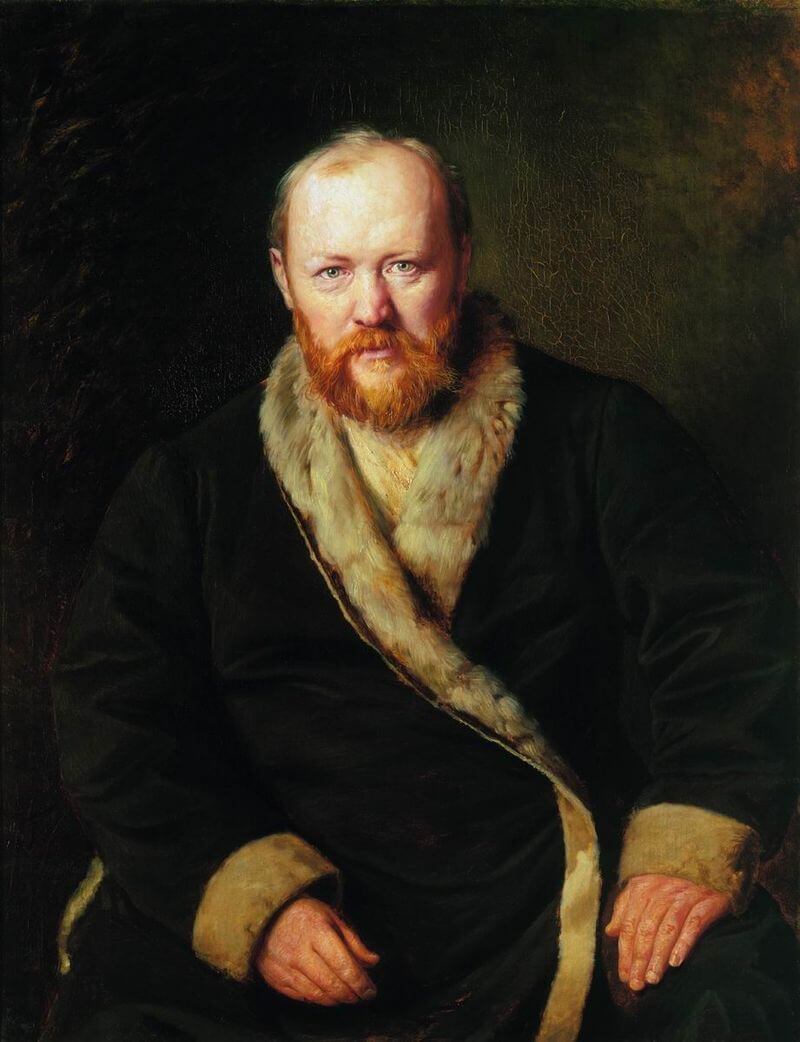Who is Alexander Nikolayevich Ostrovsky? Information on Alexander Ostrovsky biography, life story, works and dramas.
Alexander Ostrovsky; Russian dramatist: b. Moscow”, Russia, April 12, 1823; d. on his Kostroma estate, June 14, 1886. The son of a lawyer in the civil service, he entered the law school of Moscow University on his father’s urging but left school before graduation to become a clerk in the Moscow Court of Equity (1843) and Court of Commerce. (1845). Although the work did not interest him, it gave him invaluable opportunities to observe the merchant community and its medieval manners, traditions, and viewpoints, material which he was to use in his plays.
Ostrovski had always been fascinated by the theater, haunting the Maly Theater while a schoolboy in the Gymnasium, and he now began writing plays. His first published work, scenes from the comedy The Bankrupt, later renamed Svoi lyudi—soch-temsya (It’s All in the Family), appeared in a Moscow newspaper in 1847. This satire on Russian middle class family life, in which a despotic father tyrannizes his wife and children, was banned by the government of Nicholas I (d. 1885) and was produced only in 1861, under the more liberal regime of Alexander II.

Source : wikipedia.org
Ostrovski, who had lost his civil service job and come under police surveillance because of this play, dedicated himself to the theater. Altogether he wrote and adapted some 48 plays, most of which were produced at the Maly Theater. Many of these, such as It’s All in the Family and the popular Groza (1860; The Storm), dealt with members of the merchant class, but he also turned his satire on bureaucrats, as in Dokhodnoe mesto (1857; The Profitable Post); on the declining nobility, as in Beshenye dengi (1870; Wild Money) ; and on provincial actors, as in Talanty i poklonniki (1882; Talents and Suitors). Ostrovski was an exponent of the school of “critical realism” established in Russian literature by Nikolai Vasilyevich Gogol, hut in the 1870’s he wrote some fantasies, including Snegurochka (1873; The Snow Maiden), which inspired the opera of that name by Nikolai Rimski-Korsakov. Ostrovski’s plays, rooted in the Russian national life, increased in poularity with the passage of time, and after the Soviet Revolution of 1917 they enjoyed an important place in theater repertory.
In addition to writing plays, Ostrovski worked toward the education of artists in the realistic school and in general for the advancement of professional mastery. He translated William Shakespeare’s The Taming of the Shrew in 1850, and did much to popularize in Russia the plays of Shakespeare, Miguel de Cervantes Saavedra, and other great foreign dramatists. In 1865 he organized the Artistic Society, and in 1870 founded the Society of Russian Dramatic Writers. He wrote a memorandum advocating the establishment of a model national theater in 1882, and in 1885 was appointed manager of the Moscow Imperial Theaters. He may be considered the founder of the Russian repertory theater ; his contribution is symbolized by his statue standing at the entrance of the Maly Theater in Moscow.
mavi